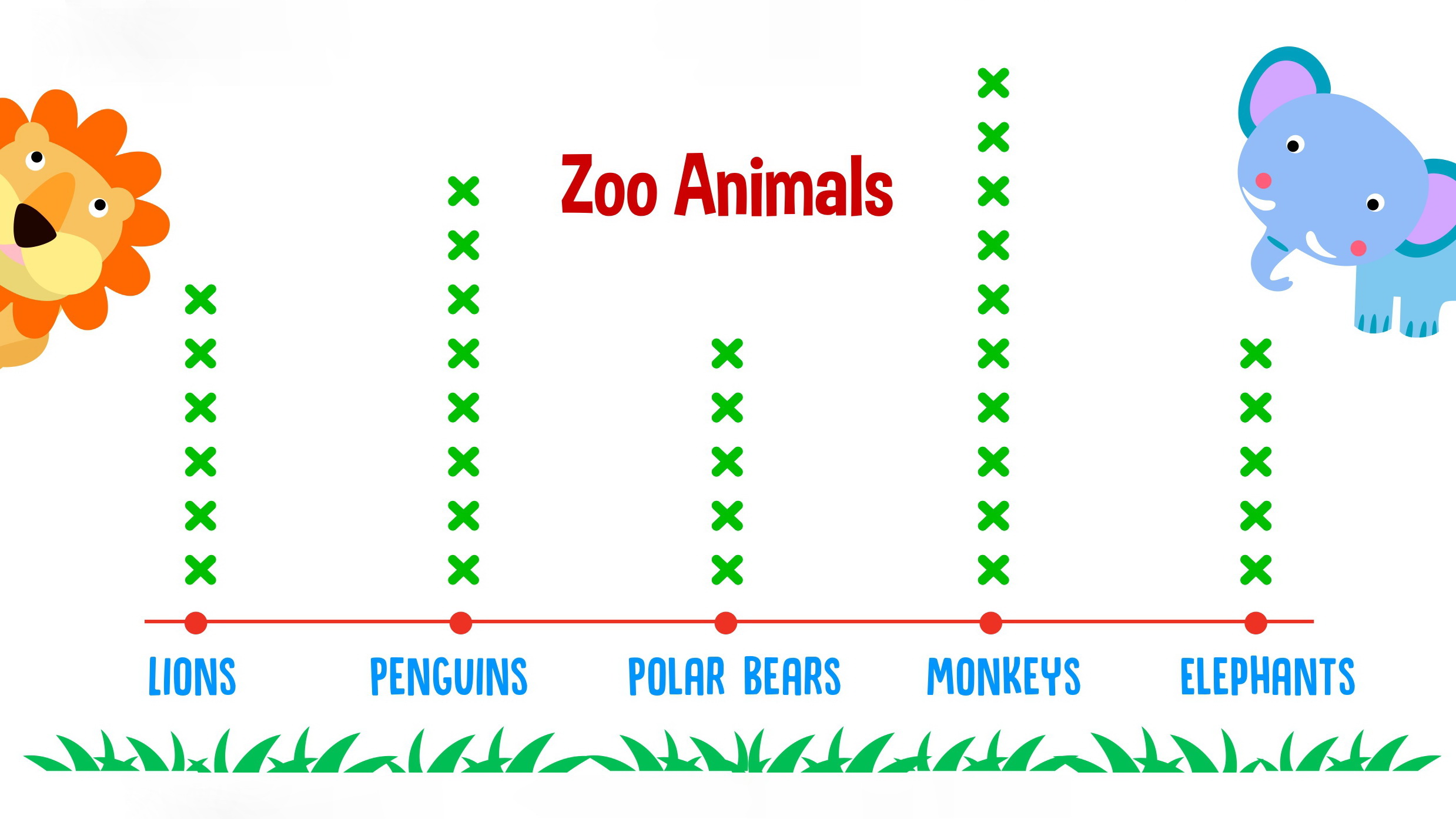The Importance of Play and 8 Games You Can Play with Your Child
Dec. 7, 2021
A German educator who created the concept of the ‘kindergarten,’ Friedrich Froebel, believed that “play is the highest expression of human development in childhood, for it alone is the free expression of what is in a child’s soul.”
There has been a decrease in children’s actual playtime, and kindergarten is now more focused on giving tests, learning with flashcards, teaching early mathematics and reading. Although preparing your kid is not a terrible thing, letting them be a child is necessary for their development. In this article, we will be talking about kids learning games that help children develop their skills.
Play is essential to the cognitive, physical, social, and emotional well-being of children.
Cognitive Growth
Playing is important for a child’s healthy brain development. During play, children's brain works through problem solving, learning, and remembering rules, paying attention, and using imagination and creativity. Board games are known to support children’s cognitive development, but aside from these, there are many other games that would help with that.
Emotional and Behavioral Benefits
Children may feel stressed and overwhelmed at times, and playing helps them reduce strong emotions. It also supports children’s confidence by giving them a sense of independence when they are allowed to play on their own with minimal supervision. There are games in which a child learns more about their own feelings and feelings of others, about the changes in emotion and ways to process and manage them. Such games teach kids how to be more empathic, distinguish different emotions and to react in certain situations.
Physical and Motor Growth
Children are naturally active, and they can go on playing for hours with little or no rest at all. Currently, as the use of technology advances, children are becoming less active. Everyone needs to do physical activities, but children are required to do more – for the sake of their physical growth and motor skills development. Playing promotes healthy and strong children by helping them control their movement, enhance balance, improve bone density and cardio-vascular health, sharpen reflexes, and build strong muscles.
Social and Communication Skills
Paired and team games are beneficial for your child’s social and communication skills. Playing practices children in listening to other people, being aware of their environment, and understanding another person’s perspective by developing empathy. Children get to communicate better during playtime, they enrich their vocabulary and learn word meanings when making sense of the rules of the game.
Games are usually guided by adults, but when they control the process too much, children may not get the benefits of playing. While a little supervision will not hurt, make sure to let your kid have the feeling of independence in play.
Here are some fun games to play with your child.
Chess
Chess is a game for two people. You put your precision and strategic skills to test by being careful with every move you make. As a kid, I always wanted to learn chess believing that it would help me become smarter; and now, having become an advanced chess player, I surely hold onto that belief. A research conducted in 1991 suggests that students who visited a chess class showed significant progress in their reading skills.
Chess is also known to increase IQ in children and even in adults! To be able to play chess, you will need a chessboard and chess pieces, but no worries if you haven’t got them since your child can play and learn chess in the Kids Academy – Talented and Gifted app! The T&G chess course is made of engaging explanatory videos, as well as games and free worksheets to practice the skills and strategies.
Video Games / Online Games
Most parents do not let their children play video or kids online games since it can be addictive. However, according to a 2013 research, playing video games may help children enhance their problem-solving skills and creativity. Of course parents should still be wary of the time their kids spend playing video games. Kids Academy offers a variety of games that will help your child develop specific skills in different areas, such as logics, number sense, vocabulary, phonics, measurements, etc.
Being an educator, I know that teaching ordinal numbers may be difficult since it makes my students feel bored. One of my favorite games in the kids learning app is the ordinal numbers with planets because students really love learning about planets and the solar system. This is a terrific way to engage children in learning while they’re having fun.
Another game that I genuinely enjoy and find effective in fostering a child’s imagination and creativity is Osmos’s Masterpiece – a game where a player can pick anything to draw and even watch how they drew it with the time-lapse feature.
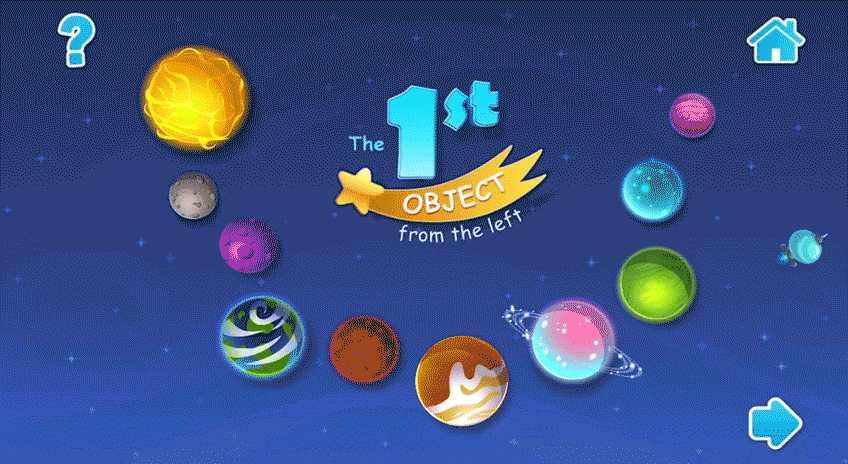
Jenga
Most of us are familiar with the popular game Jenga. It is a game where you stack blocks to build a tower, and each player should carefully take one block without toppling the tower. Playing Jenga is not only fun and engaging; it also helps your child’s cognitive and psychological development, as well as their hand-eye coordination skills. You might be wondering how all that is achieved, so let us now dive into the game’s benefits. Jenga is a game of strategies: we must think deeply about what our next move should be, what specific block we should remove to win – just like in a game of chess.
However, this game will require your child’s hand-eye coordination since they need to have a steady hand and control their movements when taking out a block after evaluating whether it may cause the tower to fall. This game also helps in developing your child’s patience considering that they have to wait for their turn. Besides that, Jenga supports social and communication skills as it is a game for everyone, and it is mostly full of laughter and fun. Lastly, it will benefit your child’s structural awareness that includes learning how to build loads while maintaining foundational stability.
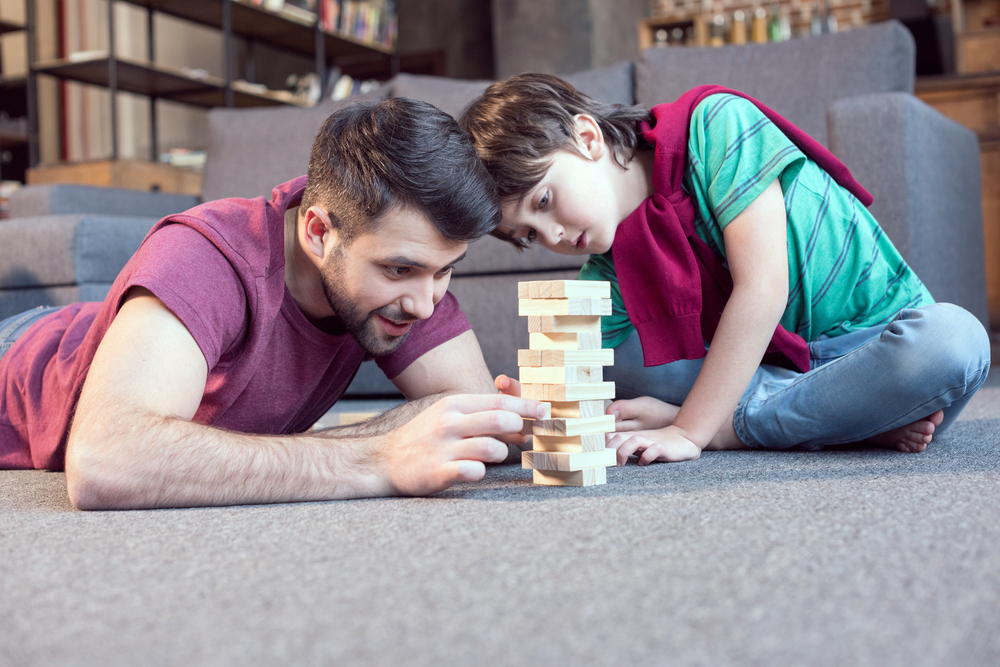
Building Blocks
Similar to Jenga, building blocks like Lego are a fun way of learning construction and experiments. This is a type of game that trains your child’s spatial awareness while cultivating their creativity. Kids Academy collaborated with E-blox to incorporate in their curriculum work with a construction set that combines building activities and scientific experiments. E-Blox is a collection of electronic construction blocks that enable you to build 3D circuits with lights, sounds and motion.
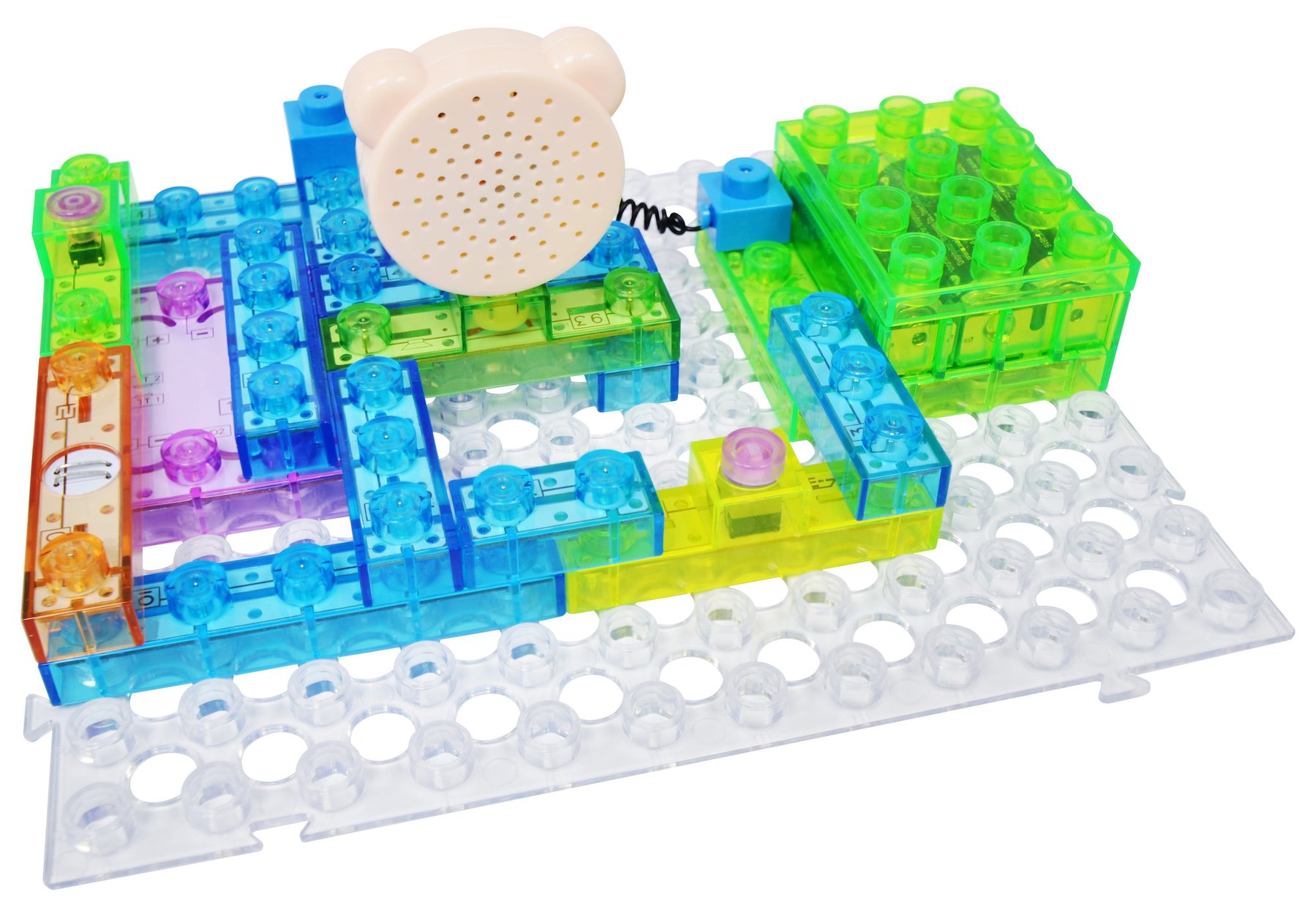
Virtual Pet Games
Everyone enjoyed having a virtual pet, you might remember downloading a game called “Pou” or “Talking Tom” where you are tasked to play and take care of them by feeding and bathing them. These games are not only a fun way to pass the time, but may also help to develop empathy in children.
A study conducted in 2015 revealed that children who played with a virtual pet dog longer had a higher score on humane attitude and empathy questionnaires. Playing electronic pet games cultivates children’s caring behavior not just to their virtual pet, but also to real pets, as well as other people. Such games can be an amazing alternative when your family cannot get the child a real pet of their own.
Simon Says
Simon Says is a common game for preschoolers that is fun and beneficial for your child’s development. Simon Says is played by one person giving directions as the other listens and follows them (e.g. Simon says “tap your head”, Simon says “jump”). Simon Says practices your child’s bodily movements and awareness by checking if they are replicating the correct action.
This game will test how well and fast your child follows directions and imitates different movements while getting familiar with body parts. It also plays tricks on your child to help enhance their listening skills – they should only follow a direction if it’s what “Simon says”.
Twister
Twister is a game for any age, it is played by 2 or more people in which they are supposed to listen to the direction on where to put their hands and feet. This game strengthens muscles, and improves balance and hand-eye coordination. It’s a fun game to play with your children; it encourages one to focus while undergoing physical exertion which supports one’s bond between body and brain. You may level up the game by writing letters or numbers on the circles to test your child’s ability in differentiating them.
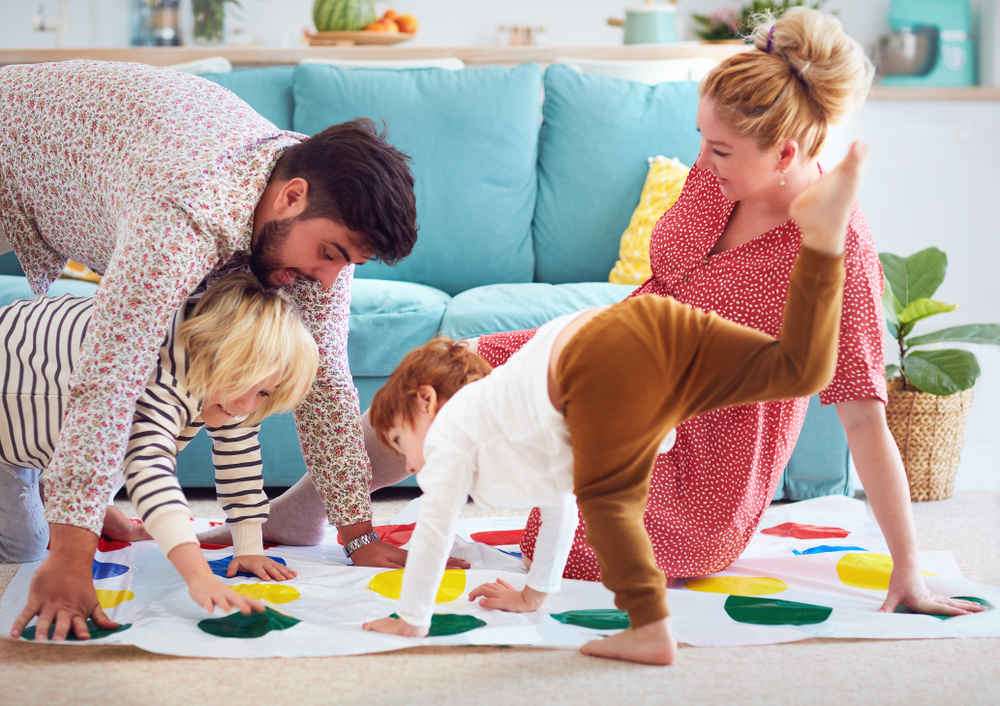
Red Light, Green Light
This game became more popular today because of the Netflix show Squid Game. Although Red Light, Green Light has been played since forever, its benefits are rarely brought up. By engaging your child in following directions (red means “freeze”, and green means “continue moving/walking”), this game teaches them self-regulation, which is an ability of a person to control their behavior and follow rules. You may also do variations by changing rules to test your child’s memory, e.g. instead of “red light, green light” you can say “black light” and “white light” – this will challenge the child to remember how to play the game.
When choosing a game for your child, always consider their age and interests. Let them play around and have fun, and learning will come naturally. It is okay to guide them through a game but don’t forget to give them independence as well. Explore together and enjoy the excitement of playtime!
About the author
Jorezza Antonio - Behavioral Therapist.
Metro Manila, National Capital Region, Philippines.
Links and References
- https://www.epl.ca/blogs/post/importance-of-play-for-kids/
- https://www.whitbyschool.org/passionforlearning/9-classic-preschool-games-that-secretly-teach-life-skills
- Tsai, Lily & Kaufman, David. (2014). Interacting with a Computer-Simulated Pet: Factors Influencing Children's Humane Attitudes and Empathy. Journal of Educational Computing Research. 51. 145-161. 10.2190/EC.51.2.a.
- https://www.readyrosie.com/blog/2017-10-13-red-light-green-light/
- https://www.britannica.com/biography/Friedrich-Froebel







